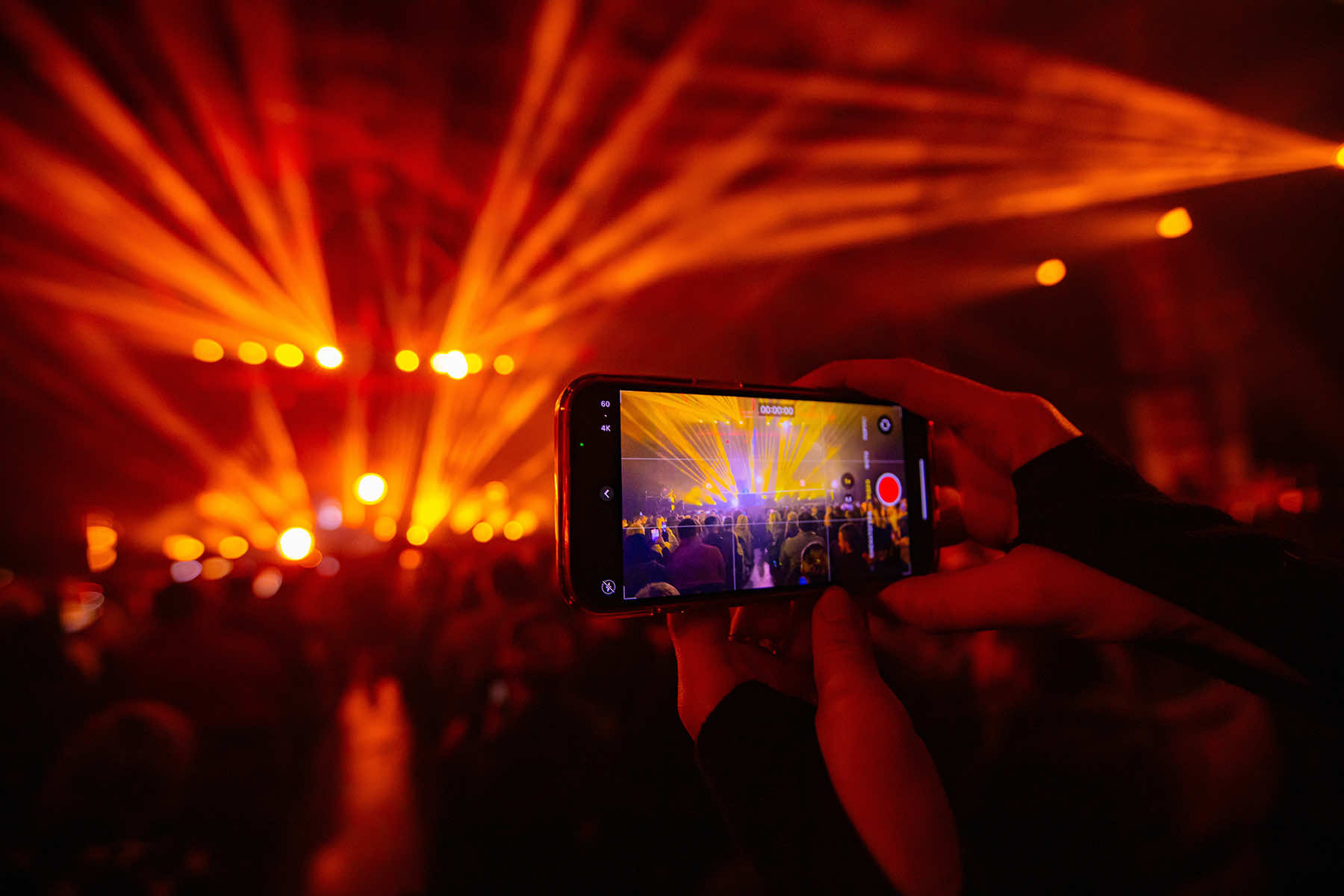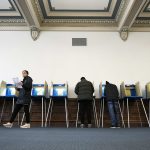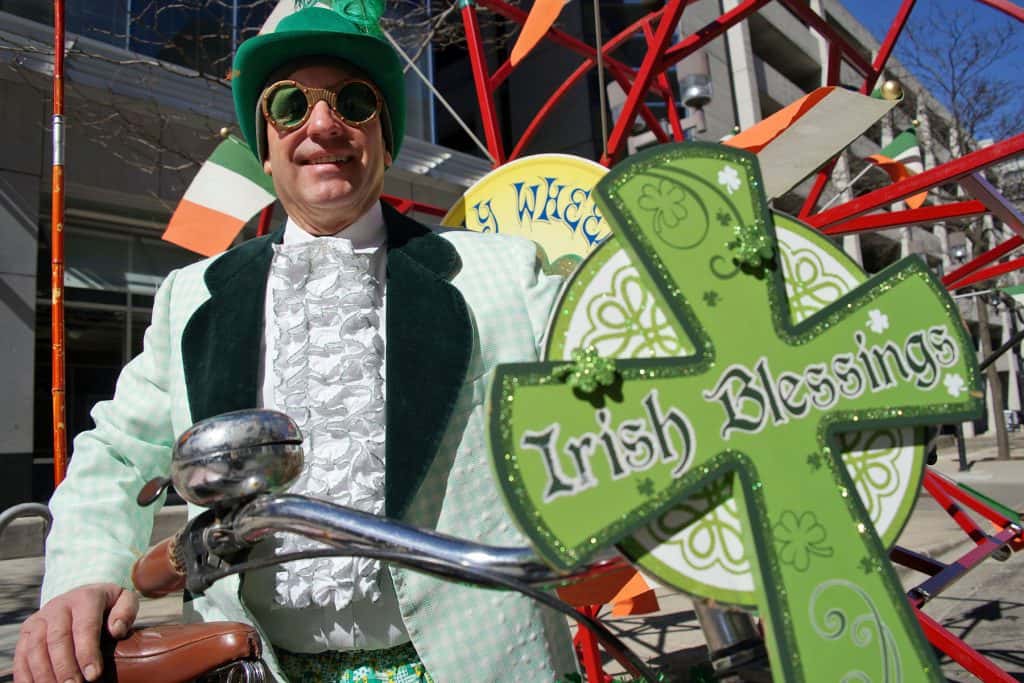
DISCLAIMER: April Fools' Day Parody Special
This article is a work of fiction, created as part of an April Fools’ Day parody tradition that celebrates satirical humor. It is not intended to depict or reference any real person, living or dead, except for Donald Trump, who is the subject of this spoof. Any similarities to other actual events or individuals are purely coincidental. This content is not intended to be taken seriously, and any attempt to do so is a willful misunderstanding of its purpose.
An emerging K-pop sensation aimed to see their latest high-energy single, “American Trumpet” (미국 트럼펫 Miguk Teureompeu), climb the music charts. But group members never intended, or expected to see its skyrocketing success would be driven by a political firestorm.
The track, designed as an energetic, brass-heavy anthem celebrating the influence of Western jazz music, took on an entirely different meaning after English-speaking listeners misheard a couple of words in its Korean lyrics.
At the heart of the controversy is a linguistic coincidence. To non-Korean speaking listeners, the song’s Korean chorus “Miguk Teureompet,” could sound very similar to “F**k Trump.”
Social media exploded with speculation, memes, and debates over whether the song was a deliberate statement, an unfortunate coincidence, or much to do about nothing. While it was originally perceived as a slur against Donald Trump, it quickly became an anthem condemning the American president’s destructive policies.
Despite the group’s insistence that the song was never intended as a political statement, and were bewildered that anyone could have such a phonetic interpretation, the dumpster fire that is the Internet has already transformed it into an accidental protest anthem.
FROM MUSIC MEME TO POLITICAL HYMN
M1VRO (미로), pronounced as “Mee-vro,” was originally a six-member K-pop boy band when they debuted with NuWaaV entertainment in 2024. However, the group lost a member by the start of 2025 do to health issues. The subsequent quintet has steadily built a strong following in Asia and Europe. Their latest EP, “Trumpet Nation,” was their first push into the U.S. market.
“American Trumpet” was conceptualized to be a bold fusion of jazz, electronic pop, and marching band elements, designed to highlight the universal appeal of brass instruments in vintage Western music. Instead, it became something else entirely.
The six-track mini-album featured songs like “Brass Revolution,” “Golden Echo,” “Horns Up,” “Swing This Way,” and “Final Parade.” The lyrics for “American Trumpet” were written to encourage listeners to “play loud” and “let the sound ring,” referring to the power of musical expression.
No hesitation, feel the vibration
Voices rising, a new sensation
Sing it loud, let the rhythm flow
From Seoul to the streets of ChicagoAMERICAN TRUMPET!
Play loud, let the sound ring!
Shake the sky, make the brass swing!
Boom-boom, let the groove ignite
March with us, set the world alight!
In the Korean language, the English word “trumpet” is transliterated as 트럼펫 (teureompet). “America” in Korean is 미국 (Miguk), and pronounced as “Mee-gook.”
“We wanted to celebrate the influence of jazz and big band music from Chicago, which shaped modern pop,” M1VRO’s leader and main vocalist Han Ji-hyeok said in a handwritten statement posted on Weverse, a Korean social media platform. “The trumpet is an instrument of energy and power. Our song is about the universal language of music. Any misinterpretation of its lyrics is purely coincidental. M1VRO does not endorse any political agenda.”
The K-pop industry is considered to be in its 5th generation, with most songs including some English words or extensive phrases. Much of that linguistical transition is due to the global reach of K-pop and the desire to speak directly to international listeners. However, M1VRO has taken an old-fashioned approach to only record songs in the Korean language.
BEEN THERE, MOCKED THAT
The “American Trumpet” song is not the first K-pop related incident involving Trump. In Aespa’s 2022 song “Girls,” the phrase “나눠 줘” (nanwo jwo), meaning “share it” or “give out,” appears in the lyrics. Some listeners noted that when the phrase was sung quickly, it could sound like “Donald Trump.”
Korean commentators have also created nicknames for “Donald Trump” that play on the sound of his name. One example was 도람프 (Dorampeu), which combines “돌다” (dolda) meaning “to go crazy” with “트럼프” (Teureompeu), suggesting a derisive alteration of his name.
In 2020, K-pop fans and TikTok users claimed responsibility for inflating attendance expectations at a Trump rally in Tulsa, Oklahoma, by reserving tickets with no intention of attending. That led to a dramatically lower-than-anticipated turnout at the event which publicly bruised Trump’s fragile ego.
Additionally, K-pop fans have engaged in political activism by using their social media influence to support social justice movements like Black Lives Matter and to counteract opposing hashtags that target the LGBTQ community. Those actions highlight the significant impact and organizational capabilities of K-pop fandoms in political contexts.
AN ACCIDENTAL PROTEST ANTHEM
Despite NuWaaV entertainment issuing a statement denying any political intent, the song has taken on a life of its own. “American Trumpet” has been played at political rallies, referenced on late-night television, and analyzed by pundits on both sides of the political aisle.
What was meant to be a celebration of the musical style that began in New Orleans, influenced by African rhythms, blues, ragtime, and brass band music, is now approaching one of the most controversial K-pop releases in recent memory.
The controversy inadvertently started hours after the track’s release on March 19, by M1VRO’s own fans – known as “Mize” (마이즈 Maijeu). An uploaded TikTok clip dissected the chorus, and commenters soon claimed the Korean phrase “Miguk Teureompeu” sounded similar to “F**k Trump” if sung at high speed by slurring the pronunciation.
The fan theory spread quickly, with videos of confused and amused listeners racking up millions of views. By the end of the day, #MigukTeureompeu and #F**kTrumpSong were trending worldwide. However, mainstream American media was slow to take notice in those early days.
By the end of March, memes emerged on Youtube pairing the song with clips of Trump speeches, edited to make them seem as if he was dancing to the beat. The most used footage came from Trump’s October 2024 town hall event in Pennsylvania, which drew widespread public ridicule for his 40-minute impromptu dance on stage.
One viral post overlaid the track onto footage of Pro-Palestinian protests against Trump with the caption: “Accidental protest anthem of the decade.”
THE PREDICTABLE RIGHT-WING BACKLASH
South Korea does not have traditional Western-style late-night talk shows, like “The Late Show with Stephen Colbert.” However, there are popular Variety shows and entertainment programs and they eventually picked up on the phenomenon.
In the U.S., political commentators have started to weigh in with less amusement. Right-wing media outlets have accused the K-pop group of intentionally sneaking a political message into their song. A conservative radio host even called the track “a blatant act of disrespect.”
“These foreign entertainers think they can mock our leaders and get away with it,” he said. “This is propaganda disguised as pop music.”
Some Trump supporters called for a boycott of M1VRO, with hashtags like #BoycottM1VRO and #KeepPoliticsOutOfKpop circulating on Elon Musk’s toxic social media platform X. However, the backlash only seemed to fuel more curiosity, as commenters noted the predictable and fake outrage of Trump’s base.
“It is super easy to boycott something you have never had an experience with,” one user posted. “I plan to boycott walking on the moon until they make lunar boots that are more environmentally friendly.”
Progressive activists, meanwhile, have begun to embrace the song as a snub towards Trump’s utter mismanagement and dismantling of the Federal government. Footage surfaced of the track being played at anti-Trump rallies in New York and Los Angeles, with protestors chanting along.
Even notable celebrities have gotten involved. One vocal Trump critic in Hollywood posted an Instagram story featuring the track, captioning it, “Accidental protest music is still protest music.”
FAN REACTIONS AND INTERNET CHAOS
“Mize” have steadily defended their beloved quintet, with M1VRO fans continually pointing out that the song’s meaning was being completely misinterpreted. They worry that the controversy might overshadow the group’s hard work and growing momentum for success. In Korean, a five-member group is referred to as “5인조” (오인조 Oinjo) when talking about K-pop groups.
“I was just enjoying the song, and now suddenly my Facebook timeline is filled with people arguing about Trump?” said Mina Park, a 19-year-old self-described “Mize” from Los Angeles. “The memes are getting out of hand. At this point, the oinjo might as well release a remix with an actual trumpet solo just to troll everyone.”
Some social media users have mocked the music label’s response, suggesting that the company was backtracking out of fear of political repercussions. Others pointed out that the situation was simply another case of a song taking on a meaning beyond the intent of its creators.
Linguistics experts have also offered opinions on how phonetics and cultural influences played a role in misheard lyrics.
“The song ‘American Trumpet’ is no longer just a song. It’s a case study in how music, language, and the Internet can collide with ‘crisis politics’ in unexpected ways,” said Daniel Jae Shin Ph.D., a Linguistic Anthropologist specializing in Natural Language Processing (NLP), in a social media post.
Dr. Shin noted that non-Korean speakers often hear Korean syllables differently, especially in fast-paced songs.
“For a native Korean speaker, ‘미국 트럼펫’ is crystal clear,” he added. “But an English speaker who isn’t familiar with the language may naturally process it differently, leading to this kind of misunderstanding.”
CHART SUCCESS AND SALES SURGE
Despite the controversy, “American Trumpet” has become M1VRO’s biggest hit yet. The song hit No. 7 on Korea’s Melon Chart within three days of release. It debuted at No. 86 on the U.S. Billboard Hot 100, a major milestone for a rookie K-pop group. Streams on Spotify surged by over 700% with many listeners tuning in due to of curiosity.
K-pop groups typically avoid overt political stances, especially when trying to break into the U.S. market. At a White House event in 2022, the globally acclaimed boy band BTS discussed the rise in anti-Asian hate crimes and promoted inclusion.
With their first world tour set to begin in May, M1VRO faces a unique dilemma for how to address the controversy when they perform at venues in the United States.
Whether the controversy fades or remains part of M1VRO’s legacy, one thing is clear – the Internet has its own way of controlling the volume. And in this case, the sound of a trumpet has never been louder.
When asked about the backlash, Kim Seobin – the group’s Lead Vocalist and Lead Dancer, kept it simple:
“The song is for the fans. They decide what it means,” he said.
- Misheard around the world: How a humble K-pop song about jazz became an accidental anti-Trump anthem
- Unlimited Ramen: Korean convenience stores roll out instant meal subscriptions with AI-assisted chopsticks
- Ghost Trains of the Koryo Saram: Mystery novel sheds light on Stalin’s forced exile of ethnic Koreans
- Godzilla in Milwaukee: Remembering an ill-fated 1956 movie production that tried to film on Lake Michigan
- Inside the mind of AI: An exclusive interview with ChatGPT about life, Milwaukee, and everything
- Age of Automation: Newsrooms consider ethical implications for journalism by using AI-powered tools
- News organization sparks controversy by replacing all its human journalists in Milwaukee with AI
Alan Smithee
SEOUL, South Korea
Ruslan Lytvyn and Kofimage (via Shutterstock)
DISCLAIMER: April Fools' Day Parody Special
The purpose of this article is as a work of satirical fiction that was specifically created for, and limited to, embracing the annual tradition of celebrating April Fools’ Day with a parody story. While some subjects are dark, and others lighthearted, none of the content is not intended to be taken seriously, and any attempt to do so is a willful misunderstanding.















